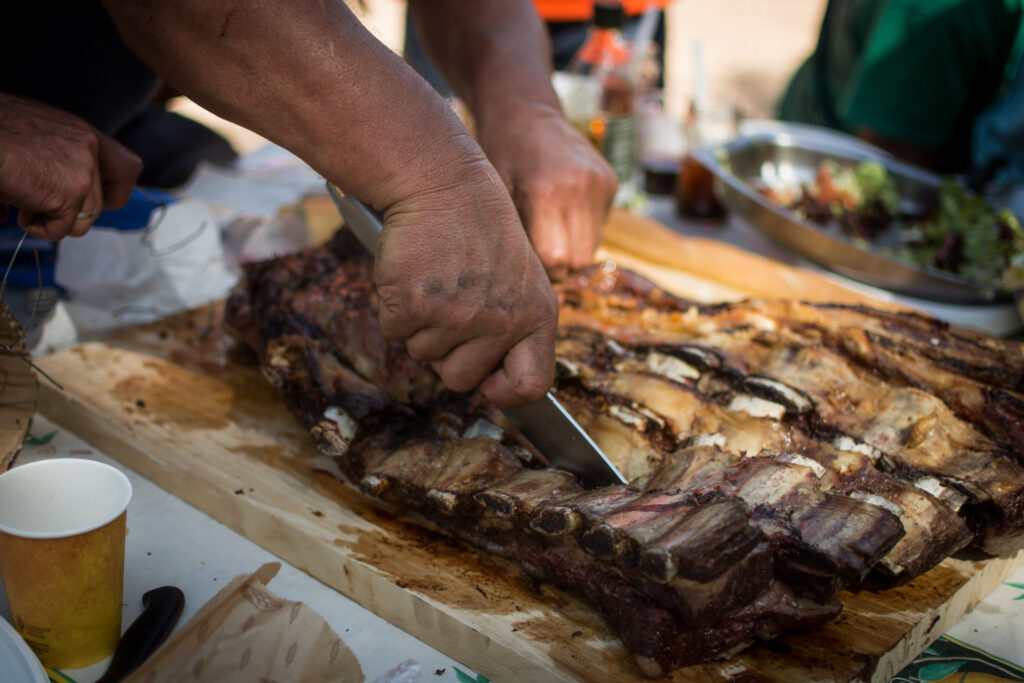Where to eat in Buenos Aires? The most delicious question to answer when you are visiting or residing in the capital of Argentina. Dining in Buenos Aires is not difficult either economically or in terms of options to choose from; The complicated thing is how to make a decision between so many gastronomic alternatives.
Therefore, we propose a series of questions that you should ask yourself to reach a final decision. From evaluating whether you want to go out to eat or order food at home to determining what you feel like eating.
Buenos Aires has some of the best restaurants and food in the world waiting for you. You just have to learn this method so that the final decision does not take so long to wait.
Key Questions to Choose Where to Eat in Buenos Aires
Delivery or Eating Out?
To eat, you need to take action. It doesn’t matter if that initiative is to order delivery or go out to eat. It’s an initiative, after all.
The advantage of eating at home or your accommodation is that you don’t have to go out or get dressed. Additionally, there are excellent delivery apps that work in Buenos Aires. However, this tends to be a passive plan and requires motivation, not to mention that you’ll have to clean up or at least dispose of the trash.
On the other hand, eating out involves not only thinking about where and how to get to the place but also enjoying a social and well-decorated venue where you’ll be served and won’t have to worry about anything other than eating and drinking.

A Place Near or Far from Home?
Great, you’ve decided to eat out. The advantage of Buenos Aires is that you can find great places to eat without needing to cross the entire city.
You should consider if you want to eat at a restaurant without walking many blocks or traveling by transport, or if you’d prefer to visit a special and distant place you have in mind.
In areas like Palermo, Puerto Madero, downtown Buenos Aires, and San Telmo, many dining options are concentrated within a relatively small radius.

What Budget Do You Have?
In Buenos Aires, you don’t need a large budget to eat out. For Argentines, dining at a restaurant might require some thought. However, for those with foreign currency, the impact on your wallet won’t be significant.
Of course, a restaurant like Don Julio, with sometimes exorbitant prices, will offer a different experience compared to a local grill or neighborhood restaurant. However, the differences are sometimes imperceptible.
In neighborhoods like Palermo, San Telmo, Retiro, Puerto Madero, and Recoleta, prices tend to be somewhat higher compared to other areas like Almagro, Villa Crespo, Balvanera, and Caballito.

How Much Time Do You Have?
Both the type of food and the type of restaurant influence the time it takes to eat out. If you go to a grill, for example, you’ll see that the meats are already on the grill, either cooking or staying warm. In these places, the wait time isn’t long since the food is practically ready.
However, in restaurants with more elaborate dishes, the wait time can be a bit longer. If you also factor in the time it might take to get a table, you might not want to wait that long.
On the other hand, some restaurants or bars, due to the type of dishes they offer or their working style, are quite fast. A perfect example is a hamburger joint or a bar.
Time isn’t usually a major factor when choosing where to eat, but it can significantly impact your dining experience.

What Do You Want to Eat?
Finally, the question everyone must ask sooner or later when dining out in Buenos Aires: What are we going to eat?
Suppose you’ve evaluated all the factors mentioned earlier. Now, you want to finally decide what to eat.
In Buenos Aires, you can base your choice on a type of cuisine, a dish, or an ingredient, and you’ll find a restaurant or bar that meets your expectations.
In terms of cuisine types, Buenos Aires offers Italian, Spanish, Caribbean, Japanese, Chinese, Korean, German, Mexican, Vietnamese, and many others. Don’t forget the local Buenos Aires cuisine, which includes flavors defining the city: Argentine barbecue, meats, pizza, empanadas, milanesas, and northern cuisine, among others.
With so many options, the decision becomes harder not because of scarcity but because you have to choose just one option.
Can’t you eat at several places and try different foods? Of course! That’s what markets like San Telmo and neighborhoods like Palermo are for, where food shops are close to each other.

Last Considerations
If there’s one area where Buenos Aires excels for its visitors, it’s gastronomy. Besides the variety of options for all tastes, Buenos Aires is a city where you eat well and plentifully.
Remember that it’s customary to leave a 10% tip at restaurants, and most places accept card payments.
Also, if you’ve chosen a restaurant in advance, consider making a reservation. In Buenos Aires, dinner at restaurants and bars usually starts at 8 PM. So, arriving at a grill at 9 PM, which is a favorite dining spot for Argentines, might mean you’ll have to wait a while for a table to become available.


